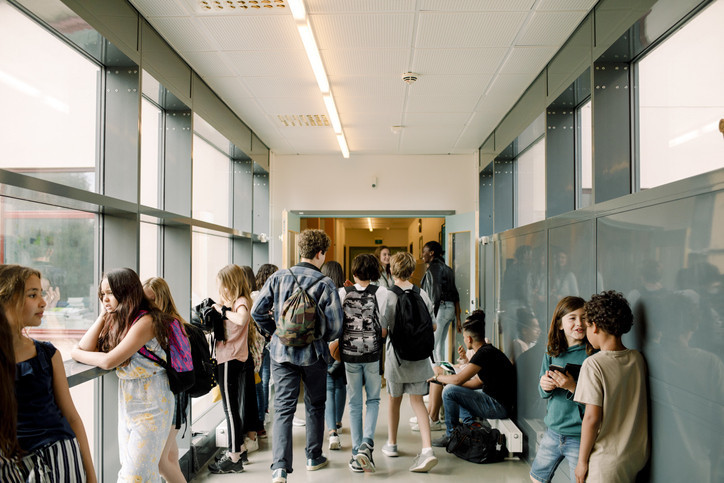Recent Articles

Gratitude enhances health, brings happiness — and may even lengthen lives

Skin care for aging skin: Minimizing age spots, wrinkles, and undereye bags

Medicare versus Medicaid: Key differences

Prostate cancer: Short-course radiation as effective as longer-term treatments

Lost a tooth? What to know about dental implants

Hyperbaric oxygen therapy: Evidence-based uses and unproven claims

Gatorade. Liquid IV. Do you need extra electrolytes?

Sexual violence can cast a long shadow on health

Eggs, protein, and cholesterol: How to make eggs part of a heart-healthy diet

Can a quick snooze help with energy and focus? The science behind power naps
Relationships & Connections Archive
Articles
Get back your social life to boost thinking, memory, and health
Staying socially active is associated with cognitive benefits and may play a role in longevity, stress reduction, and controlling mood. If a person has been out of touch with friends for a long time, one way to restart contact is to send a brief message asking how they're doing or recalling a shared activity. If the person reciprocates, the next step might be to suggest a meeting, ask to get together, or schedule a catch-up phone call or video chat.
Navigating middle school is tough: How parents can help
Middle school can be challenging for many students, with increased time demands, more homework, and social situations to navigate. What can parents do to support their kids and strengthen family bonds during this period in their lives?
Lending a helping hand
People who devote time to helping others are often happier than those who don't. Serving others also helps brain health by increasing social connections, which can protect against loneliness and depression, and improving executive function skills like planning, attention, and remembering tasks. Common ways to help others include volunteering, mentoring, random acts of kindness, and seeing life from another person's perspective.
3 group housing trends for the 60 and older set
Three group housing trends can help ward off loneliness and isolation in older age. One trend is specialized communities, which are private mini-neighborhoods that promote shared activities, involvement with neighbors, and sometimes shared goals (such as providing stable lives for foster children). The communities are run by the people who live there or by nonprofit organizations. Another trend is home sharing—taking on a boarder or sharing a home with friends. A third trend is residential care homes, which are small assisted living facilities in private homes licensed by the state.
Validation: Defusing intense emotions
Validation is a valuable communication technique that can help people feel heard and understood. When used correctly it helps us understand another person's feelings and establishes trust, particularly in situations with heightened emotions.
Seeing red? 4 steps to try before responding
Simple coping strategies like counting to 10 are often useful to help you avoid an outburst. But as multiple challenges in recent years have amped up stress levels, those strategies may not be enough. So what steps can you take to avoid reaching your boiling point?
Bonds that transcend age
Intergenerational friendships typically involve an older adult and someone who's 15, 20, or more years younger. Studies suggest people can benefit physically and psychologically from such friendships. Friends of diverse ages can expose people to different experiences, attitudes, and approaches. To create intergenerational friendships, people can use a shared workplace or activity as a springboard for deeper connection. They should show genuine interest in the other person's life and experiences.
Denial: How it hurts, how it helps, and how to cope
Denial is a natural response at times when you're unable or unwilling to face the facts. As a defense mechanism, it can be helpful or harmful. Here's how to spot it in yourself and others, and how to move from denial toward meaningful change.
Creating communities that help support neurodiverse children
For neurodiverse children and their families, the landscape of friendships and social spaces can feel unwelcoming. Being more inclusive is a positive step, yet it takes more to create communities where everyone feels they belong.
What is somatic therapy?
Trauma can register within our bodies on a cellular level. What that means — and how best to heal from serious traumas — is the focus of somatic therapy, a newer form of mental health counseling that highlights how deeply painful experiences affect us and can be addressed through mind-body approaches.
Recent Articles

Gratitude enhances health, brings happiness — and may even lengthen lives

Skin care for aging skin: Minimizing age spots, wrinkles, and undereye bags

Medicare versus Medicaid: Key differences

Prostate cancer: Short-course radiation as effective as longer-term treatments

Lost a tooth? What to know about dental implants

Hyperbaric oxygen therapy: Evidence-based uses and unproven claims

Gatorade. Liquid IV. Do you need extra electrolytes?

Sexual violence can cast a long shadow on health

Eggs, protein, and cholesterol: How to make eggs part of a heart-healthy diet

Can a quick snooze help with energy and focus? The science behind power naps
Free Healthbeat Signup
Get the latest in health news delivered to your inbox!
Sign Up











